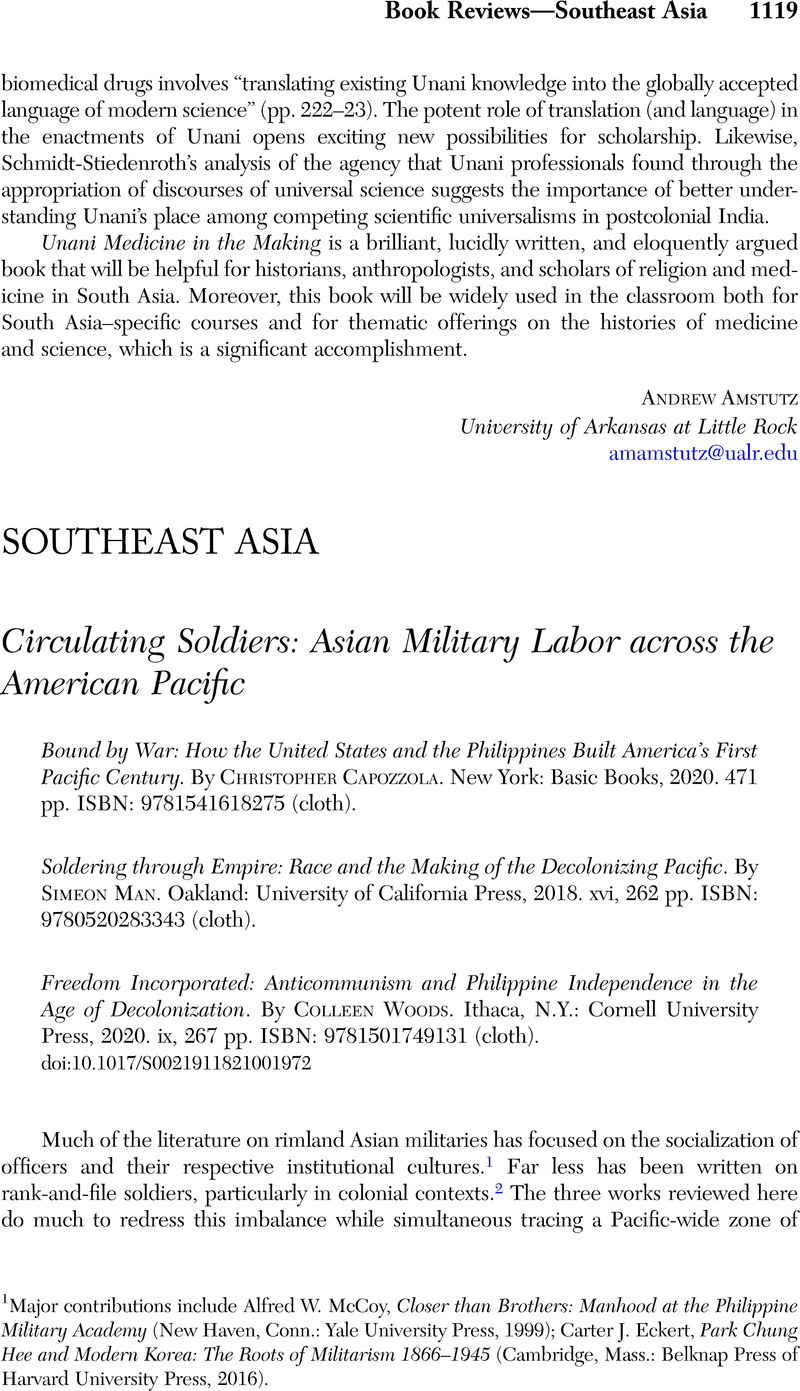No CrossRef data available.
Published online by Cambridge University Press: 10 January 2022

1 Major contributions include McCoy, Alfred W., Closer than Brothers: Manhood at the Philippine Military Academy (New Haven, Conn.: Yale University Press, 1999)Google Scholar; Eckert, Carter J., Park Chung Hee and Modern Korea: The Roots of Militarism 1866–1945 (Cambridge, Mass.: Belknap Press of Harvard University Press, 2016)CrossRefGoogle Scholar.
2 For recent examinations of military laborers in colonial states, see Vartavarian, Mesrob, “Pacification and Patronage in the Maratha Deccan, 1803–1818,” Modern Asian Studies 50, no. 6 (2016): 1749–91CrossRefGoogle Scholar; Vartavarian, “Disaggregating Colonialism: Recent Trends in Philippine Muslim Studies,” Journal of Asian Studies 80, no. 1 (2021): 227–38.
3 Cumings, Bruce, The Origins of the Korean War, vol. 2, The Roaring of the Cataract 1947–1950 (Seoul: Yuksabipyungsa, 2002), 193–203Google Scholar, 244–50, 256–59.
4 Hutchcroft, Paul D., “Reflections on a Reverse Image: South Korea under Park Chung Hee and the Philippines under Ferdinand Marcos,” in The Park Chung Hee Era: The Transformation of South Korea, Kim, Byung-Kook and Vogel, Ezra F. (Cambridge, Mass.: Harvard University Press, 2011), 542–72Google Scholar. It is odd that Man does not cite this work, as he utilizes other chapters from this volume.
5 Immerwahr, Daniel, How to Hide an Empire: A History of the Greater United States (New York: Picador, 2019)Google Scholar.